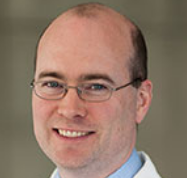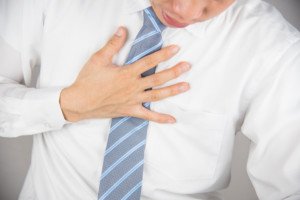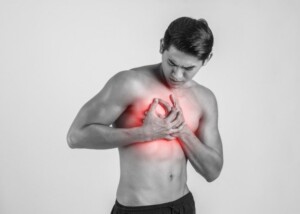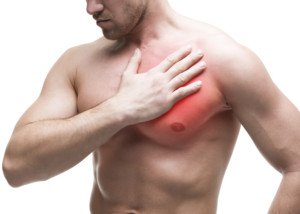Heart problems can definitely cause pain in the chest that comes and goes. But so can so many other conditions that are unrelated to the heart.
This article will focus on conditions of the heart that can cause a coming and going situation of pain or discomfort in the chest.
What exactly does “comes and goes” mean?
This is open to interpretation. To some people, this common phrase means something that lasts only seconds when it “comes.”
To others it may mean something that lasts for hours when it “comes.”
Chest pain from a heart problem can come and go, with brief to lengthy periods of time in between occurrences of the symptom.
“The biggest concern with transient chest pain is that it might be associated with insufficient blood flow to the heart,” says Christopher J. Hanifin, PA-C, who was previously a physician assistant in open heart surgery with Cardiothoracic Surgery of South Bend in South Bend, IN.
“This anginal pain is usually associated with exertion – it comes on with activity and usually resolves fairly promptly with rest. This type of pain generally occurs over the course of minutes, not seconds.”
Some Considerations About Angina
• You can’t rule out angina just because chest pain occurs during rest.
In severe cases of coronary artery disease, chest pain can spontaneously occur, even when watching TV.
• However, this “unstable” form of angina will also mean that the patient will frequently experience the same kind of discomfort with physical exertion.
Chest Muscle Cramp During Weightlifting
Pain in the chest that occurs with exertion isn’t always caused by a heart issue. The exertion – such as deadlifting a heavy barbell – can cramp the chest muscle — even though the chest is not targeted during this movement.
The chest muscle is an antagonist (opposes) to the back musculature when the back muscles are being activated.
This can also happen from straining to do a pull-up. The pectoralis muscle group cramps up and has nothing to do with the heart.
Heart Problems Other than Clogged Arteries that Cause Transient Chest Pain
• Chronic heart failure. A weak heart muscle isn’t pumping enough blood.
• Coronary artery spasm. This is not related to plaque buildup inside the artery.
• Valve disease, which causes insufficient blood flow in the heart.
• Abnormal heart rhythm (arrhythmia)
• Enlarge aorta (aortic aneurysm). However, chest pain from a non-rupturing aneurysm is rare.
When Chest Pain that Comes and Goes is NOT Likely Caused by a Heart Problem
• When the discomfort lasts only seconds or what the patient would describe as momentary.
• The pain or ache fluctuates with body position and may even be relieved by a change in position, or outright caused by certain positions.
• Massage relieves it.
• Pressing on the chest causes or aggravates it.
• It’s the same discomfort one has experienced in the past that was not connected to the heart.
• Is predictably relieved with over-the-counter painkillers.
• Is never accompanied by shortness of breath, sweating, a faint feeling or pain that radiates to the jaw or arm. However, a panic attack can cause a sensation of difficulty breathing, sweating and feeling faint.
“There are other conditions that can cause similar transient chest pain,” says Hanifin.
“For example, some people suffer from esophageal spasms that can mimic angina.
“Muscle spasms can also affect the muscles of the chest wall. These are sharp, crampy pains that can be quite severe.” As mentioned, these can be caused by intense weightlifting.
“Nerves also exit the spine and run between the ribs,” says Hanifin. “If these nerves get pinched, a sharp pain can result.
Even if it comes and goes, “Significant chest pain should always be promptly evaluated,” says Hanifin.
This is especially true if you have the following alarm factors for heart disease:
• Over age 50
• Sedentary lifestyle, no structured exercise
• Easily get short of breath or work up a sweat (e.g., walking a dog across a field of grass or walking up a single flight of stairs)
• Overweight, especially morbid obesity
• Smoking
• Uncontrolled high blood pressure
• High sodium diet
 Christopher J. Hanifin, PA-C, is currently Department Chair and Assistant Professor, Department of Physician Assistant, Seton Hall University,
Christopher J. Hanifin, PA-C, is currently Department Chair and Assistant Professor, Department of Physician Assistant, Seton Hall University,
 Lorra Garrick has been covering medical, fitness and cybersecurity topics for many years, having written thousands of articles for print magazines and websites, including as a ghostwriter. She’s also a former ACE-certified personal trainer.
Lorra Garrick has been covering medical, fitness and cybersecurity topics for many years, having written thousands of articles for print magazines and websites, including as a ghostwriter. She’s also a former ACE-certified personal trainer.
.










































